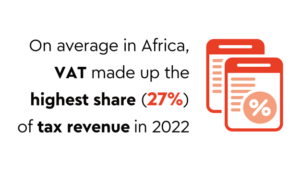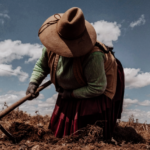Tourism is a significant cog in the economic machinery that drives Africa as a brand. On the back of Africa Month in May, the South African Department of Tourism remains committed to strengthening a positive narrative about the African continent as an attractive, competitive and safe tourism destination.
To lend impetus to the pillars of the Africa Month theme, namely to promote pan-Africanism, popularise partnerships and profile thought-leadership content to advancing the Africa we want, the department is proud of South Africa’s inclusion in the UN World Tourism Organisation (UNWTO) regional conference (under the theme of strengthening Brand Africa for the swift recovery of the tourism sector) held in Windhoek, Namibia in June 2021. This dynamic event provided a significant platform for thought leaders and captains of industry to engage, strategise and share best practices.
In addition to the panel discussion, an African ministerial think tank looked at providing high-level insights and guidance on key collective actions necessary to strengthen the image of Africa, and reflect on a positive and authentic narrative of the continent in order to help build consumer and market confidence and thereby accelerate recovery and build long-term positive impacts on the perception of the region and its tourism sector.
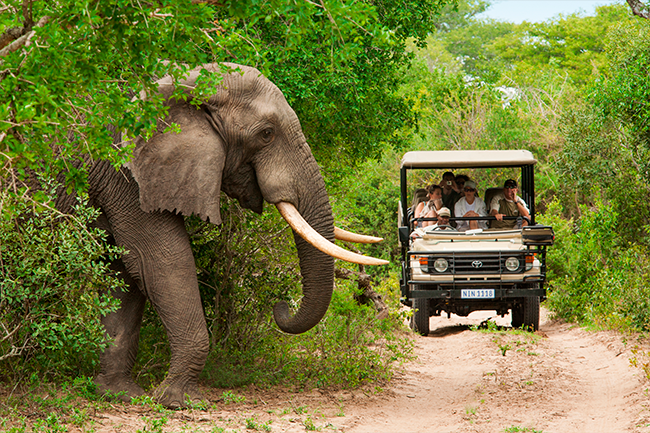
The UN World Tourism Organisation (UNWTO) African member states unanimously endorsed the Windhoek Pledge on Advocating Brand Africa. Under the terms of the pledge, members will engage both public and private-sector stakeholders as well as local communities to build a new, inspiring narrative for tourism across the continent. They will identify positive, human-centred stories and, through strengthened partnerships with the media, showcase them to the world, reaching new and diverse tourism source markets.
The UNWTO has committed to work with all signatories to create a common roadmap towards establishing Brand Africa. This will include establishing common values and goals, and identifying funding needs and opportunities, as well as providing branding toolkits for destinations, including guidelines, recommendations, training and capacity building in market intelligence, digital marketing and data management.
The objective was to leverage tourism as a cross-cutting sector with high impact on national and regional branding to enhance the image of African destinations as the building blocks of the overall image of the continent.
Tourism supports a vibrant and diverse value chain, which experienced fundamental disruptions and is responsible for employment opportunities, geographic diversification and increased foreign-currency receipts.
The sector is therefore a strategic development priority and a catalyst in growing other linked sectors.
The historic nature of the pandemic and economic downturn has made it necessary for the government to work together closely with all role players to mobilise one of the largest economic response packages in the developing world.
With its extensive value chain and labour-absorption capacity, the sector is a significant tool for economic development as well as responding to the country’s socio-economic challenges. Historically, the tourism sector has demonstrated resilience through global financial challenges and health crises.

The pandemic has had a profound effect on the global tourism sector. Governments across the world have had to implement measures to contain the spread of the virus. The pandemic has affected the entire tourism value chain negatively due to a decline in the demand for tourism services.
A direct impact of the pandemic has been a restriction of movement globally. The tourism and travel industry remains one of the most affected sectors by COVID-19:
- By July 2020, South Africa’s tourism industry had lost ZAR68 billion in revenue
- In February 2021, projections by hospitality businesses showed a significant decline in earnings, down on average by 72% for the coming three months
- Income from accommodation decreased by 65.5% by end-November 2020 compared to end-November 2019
- An estimated 600 000 tourism jobs are at risk due to COVID-19.
The pandemic has necessitated that consumers re-prioritise and re-evaluate their spending. Lockdown restrictions have driven consumers to work, shop, socialise and entertain themselves online more than ever. Concerns about health and safety impact greatly on the travel decision-making processes. with some consumer opting to drive to their local destinations, to minimise exposure.
Domestic tourism has shown stronger and faster recovery than international. This will need to be a key focus to sustain the sector until international travel resumes.
The tourism sector is one of the critical intervention areas identified in South Africa’s Economic Reconstruction and Recovery Plan, as the industry is a key driver of economic recovery in the country. The Department of Tourism together with its stakeholders, have collaborated to develop the robust Tourism Sector Recovery Plan.
The Tourism Sector Recovery Plan (TSRP) is a response to the multiple challenges brought on by the pandemic. Among other things, the COVID-19 pandemic has had the following impacts on the tourism sector:
- Closure of businesses
- Businesses operating at drastically reduced capacity
- Massive job losses
- Collapse of supply and demand on the domestic and international markets
- Persistent pressure on the South African tourism brand due the country’s association with the 501.v2 variant of COVID-19
- Regression of transformation in the tourism sector.
The Tourism Sector Recovery Plan is anchored by three interlinked pillars or strategic themes, namely protecting and rejuvenating supply; reigniting demand; and strengthening enabling capability for long-term sustainability.
REJUVENATING SUPPLY
- Conclude a comprehensive industry and government partnership to collaborate on all aspects of tourism recovery
- Deploy an enhanced tourism supply support package to protect tourism assets and core infrastructure
- Implement globally recognised biosecurity protocols across the value chain to enable safe travel and to rebuild traveller confidence
- Convene a national air-access team and implement an air-service development programme to reconnect South Africa to the world.
REIGNITING DEMAND
- Partner with departments to remove barriers to travel and enable freer entry, reduced tourist crime and provide stronger personal safety and security guarantees
- Catalyse domestic demand through the phases of economic re-opening with informative and inspirational messaging that encourages safe tourism and domestic vacation experiences
- Execute a global marketing and travel trade programme targeted at higher-potential source markets and intrepid travel consumer segments to reignite international demand.
STRENGTHENING ENABLING CAPACITYy
- Launch an investment and market-entry facilitation programme to stimulate capital investment, transformation and product diversification
- Prioritise co-operation with neighbouring destinations towards a regional value proposition in addition to a seamless visitor experience
- Review and transform institutional architecture to deliver efficient, effective and purpose-led support for sector growth and development.
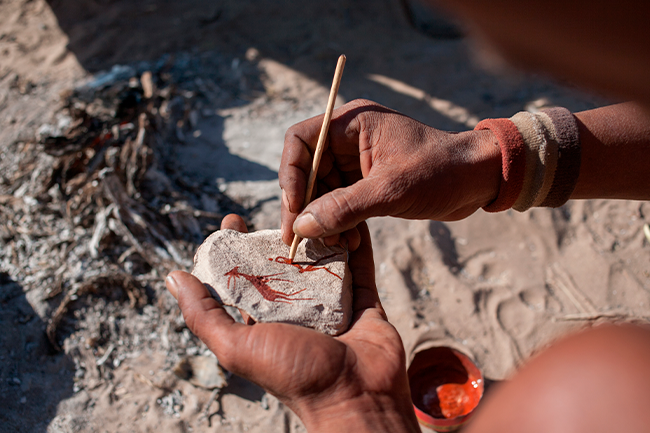
LOOKING AHEAD
Tourism is fundamentally about people moving around, and this can be done safely under the globally benchmarked health and safety protocols that the tourism industry in South Africa has in place. A robust vaccination programme will be key for safer tourism and the normalisation of the sector, and the roll-out of vaccines, both globally and locally, is critical in rebuilding confidence in travel.
Removing barriers and enabling the regulatory environment will also contribute to ease of travel. The following enablers have facilitated and propelled this:
- The announcement regarding e-visas for travellers from China, India, Nigeria, Kenya and 10 other countries
- The World Trade Organisation reports the expected increase in passenger numbers driven by improved facilitation of visas at between 5% and 25%
- The AfDB’s fifth annual Visa Openness Index report argues that more open borders and cross-country mobility will be important for economic recovery
- The department is encouraged to see trusted global airline partners, such as Qatar Airways, continuing to show faith in the destination by increasing their flying frequency to South Africa.
Working through multilateral institutions and platforms such as the AU’s specialised technical committee on transport, transcontinental and interregional infrastructure, energy and tourism as well as the World Travel and Tourism Council, UNWTO and the G20 Tourism Agenda, South Africa will pursue an integrated global approach to tourism recovery and draw lessons from global best practices.
The following strategic interventions will be implemented in order to support the revival of the sector:
- Introduction of norms and standards for safe operation across the tourism value chain to enable safe travel and rebuild traveller confidence
- Stimulation of domestic demand through targeted initiatives and campaigns
- Strengthening the supply-side through resource mobilisation and investment facilitation
- Support for the protection of core tourism infrastructure and assets
- Execution of a global marketing programme to reignite international demand
- Tourism regional integration
Reviewing the tourism policy to provide enhanced support for sector growth and development.
A further set of key enablers have been identified, namely forming targeted, strategic partnerships between government and industry; partnering with relevant departments to ensure improved travel facilitation through the implementation of e-visas, tourist safety, airlift capacity and quicker turnaround times in the processing of tour operator licences; deployment of the vaccine to front-line workers, attainment of population immunity and participating in global efforts to facilitate safe travel; and stimulating domestic demand through government consumption expenditure.
The implementation of enablers will be led by other government departments working closely with the Department of Tourism and its sector partners. It is expected that, together, the interventions and enablers outlined in this plan will facilitate the preservation of ZAR189 billion of value, help the sector to recover to its 2019 output and employment levels by 2023, as well as position the sector for long-term sustainable growth.
Furthermore, implementation of the plan can reduce the impact of the COVID-19 crisis on employment by 125 000 jobs.
The plan is aligned to the Economic Reconstruction and Recovery Plan (ERRP), the country’s plan for overall economic recovery published in late 2020. The ERRP re-affirms tourism’s position as a major contributor to the South African economy and its envisaged role in the broader economic reconstruction and recovery effort.
As a continent, we need to demonstrate collaboration in the targeted areas of product development, regional routes, air access and data sharing – making data-oriented decisions together. Through its National Development Plan, South Africa continues to give expression to the AU Agenda 2063, the masterplan for transforming Africa into the global power-house of the future. Together, Africa will rise.
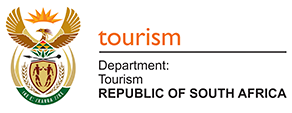
+27 (0)12 444 6000
callcentre@tourism.gov.za
www.tourism.gov.za


